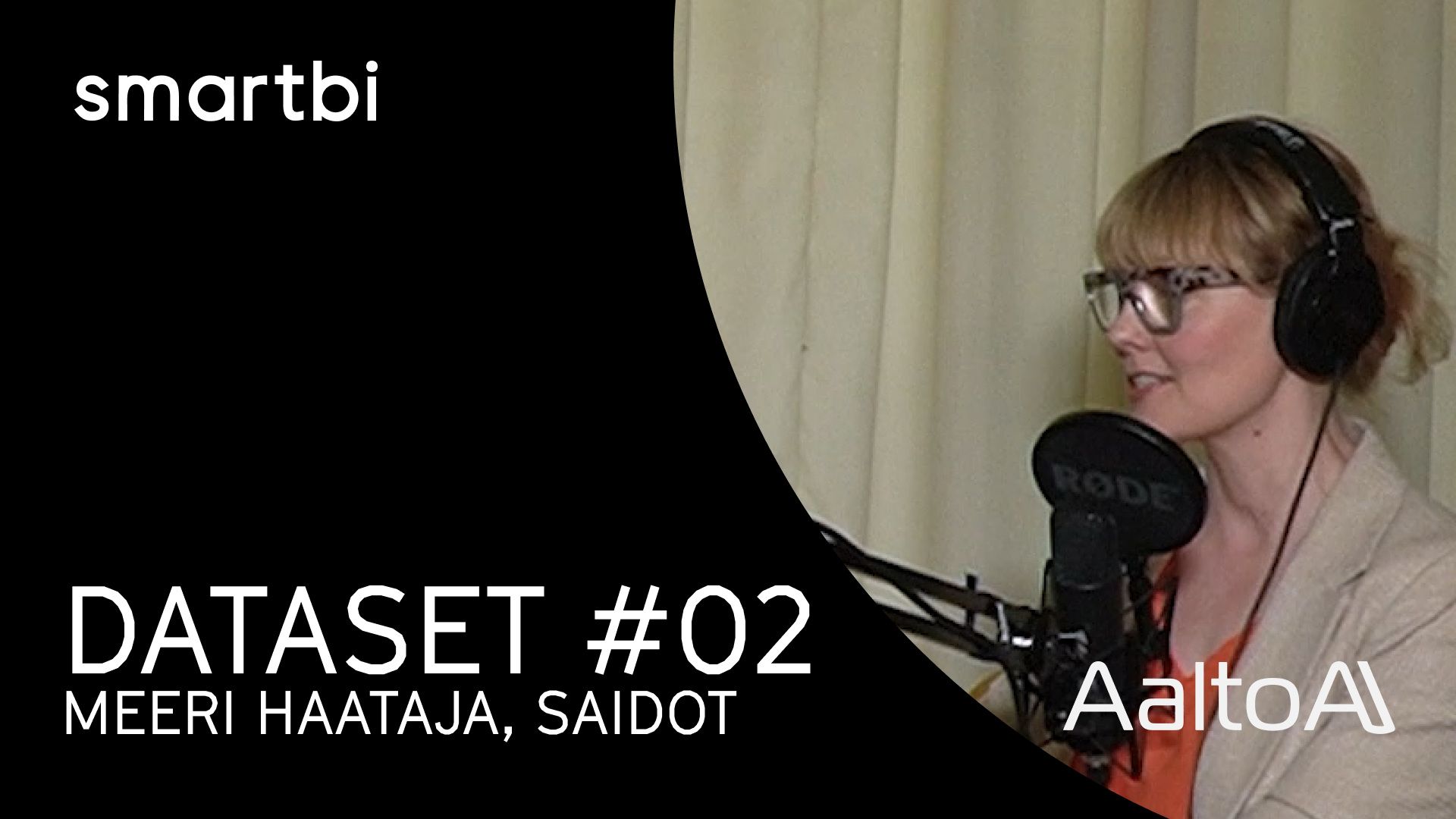
In the second episode of the Dataset podcast, we explore, as always, the latest AI news. In the interview section, we dive into AI governance and compliance and discuss the implications of the EU AI Act with our guest, Meeri Haataja, CEO and Founder of Saidot. Haataja is also a member of the Safety Advisory Board at Snap Inc. Previously, she served as the chair of IEEE's AI Impact Use Cases and was the lead for Finland's AI Program Ethics working group. Additionally, Haataja has been an Affiliate at the Berkman Klein Center for Internet & Society at Harvard University.
Haataja shares insights from starting her journey in compliance, data, and tech and how it all ties to the story of Saidot. The discussion revolves around the latest developments in AI regulations, debunking the myths about the EU AI Act while addressing practical questions about implementing the law.
At the end of the episode, we highlight a concept everyone interested in the latest AI developments should understand. This time, we will explain what Nvidia's CUDA means and why it is crucial in the ever-changing world of AI.
Listen to the full episode on Spotify, and for those seeking a quick summary, read the highlights and summary of our discussion with Meeri Haataja below.
Listen nowLatest AI News
Amazon x Antropic: Amazon has invested $4 billion in Antropic, becoming a minority stakeholder. This partnership is poised to reshape the landscape of large language models, similar to the dynamic between OpenAI and Microsoft.
Unified Acceleration Foundation: Prompted by Nvidia's dominance in AI computing, companies like Google, Intel, and Qualcomm have launched the Unified Acceleration Foundation. This initiative aims to create a cross-architecture for accelerating GPUs, challenging Nvidia's CUDA.
Layoffs and AI: UPS and IBM have announced significant layoffs and hiring freezes attributed to AI's potential to replace certain job roles. This trend underscores the urgent need for re-skilling, as represented by the newly formed Information Technology and Communication Consortium (ICT).
Mistral's new release: Mistral has introduced its latest model, the 8x20, boasting 176 billion parameters and a 65,000 token context window. This release coincides with other major model launches and highlights the ongoing advancements in AI technologies.
Meta LLM Transparency Toolkit: The new LLM-TT is an open-source tool designed for deep analysis of transformer-based language models. It allows for detailed inspection of data flow from input to output and allows developers to closely examine specific components like attention heads and neurons. The toolkit fills a crucial gap in understanding, monitoring, and verifying the behavior of large language models, potentially revealing biases and enhancing model alignment more effectively than before.
Meeri Haataja and Saidot – Exploring AI Governance and the EU AI Act
With over five and a half years at Saidot, Haataja has been at the forefront of AI governance, helping companies such as Snap Inc. navigate the complex world of AI safety. Her journey into AI began with accidental involvement in GDPR compliance around the time of data scandals, such as Cambridge Analytica, which highlighted significant ethical risks and impacts.
Saidot is currently working with companies to advise them on the implications of the EU AI Act. The Act is designed to safeguard citizens from the potential harms of AI as it becomes more integral to society. The core of the Act is simple: AI systems need to be developed and used safely and fairly, with fundamental human rights respected.
The Act requires AI developers and deployers to conduct thorough risk assessments and adopt appropriate governance practices based on AI systems' risk levels. High-risk systems are subject to strict compliance checks and transparency requirements, especially in sensitive sectors like healthcare.
The discussion touches on how fine-tuning a model can change a deployer's role to a provider under the AI Act, reflecting a shift in responsibility and governance. The AI Act's influence extends beyond the EU, setting governance standards globally and affecting how companies outside the EU handle AI development for international markets.
AI Highlight: Nvidia's Cuda
Nvidia's Cuda (Compute Unified Device Architecture) helps developers utilize the GPU acceleration properties of Nvidia GPUs. What exactly does GPU acceleration do? To simplify, imagine a group of people, each wearing different-colored shirts – some red, some yellow, etc. Instead of asking each person individually to find another with the same shirt color, you instruct everyone simultaneously to pair up with someone wearing the same color. This is what GPU acceleration does – it doesn't process tasks sequentially but in parallel. This parallel processing capability is why GPU acceleration is so powerful, allowing for rapid, extensive computations. This programmability and flexibility make Nvidia's Cuda highly sought after among AI experts, particularly those working with deep learning.
Could AI be applied to your business case?
Subscribe to the newsletter and learn how AI can solve business challenges.